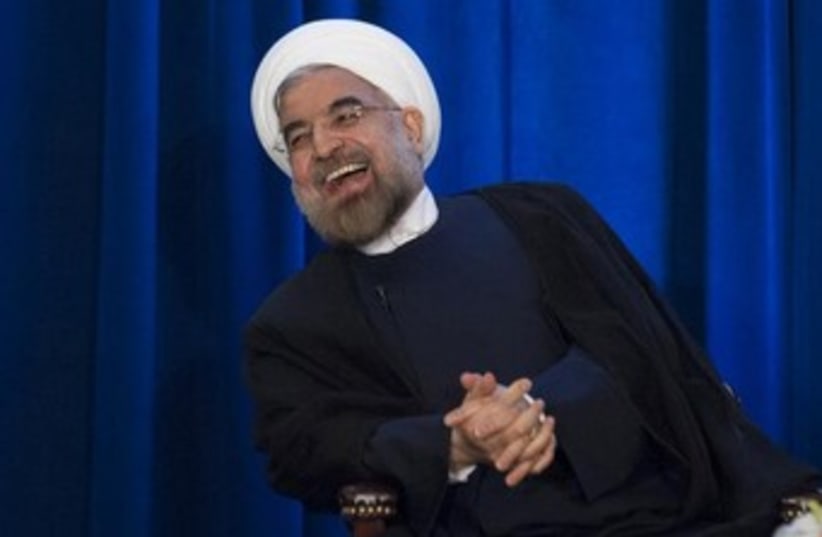Our relationship w/ the world is based on Iranian nation's interests. In #Geneva agreement world powers surrendered to Iranian nation's will
— Hassan Rouhani (@HassanRouhani) January 14, 2014 The parties will then have six months to negotiate a comprehensive solution to the long-standing nuclear impasse, with the option of a sixmonth extension should all parties agree on it.The first step toward comprehensive negotiations will likely be strategic planning on the part of the P5, State Department deputy spokeswoman Marie Harf said on Tuesday.Talks with the Iranians are not expected to begin until late February, after world powers agree on a framework in which to proceed.The Los Angeles Times reported on Tuesday that a side deal had been reached between the US and Iran regarding implementation of the Geneva deal that would not be made public.The report asserted that the “nonpaper” included details of how the joint commission overseeing the deal’s implementation would be operated.But the Los Angeles outlet misreported the definition of nonpaper as a diplomatic term: such a proposal is a draft, not an official document, in foreign relations.Nevertheless, the claim is being taken seriously by those already skeptical of the deal.“We are deeply concerned by recent reports that the Obama administration has negotiated what some are calling a ‘secret side deal’ with Iran regarding the future of its nuclear program,” Senators Lindsey Graham and John McCain said on Tuesday in a joint statement.“Iran’s chief nuclear negotiator has claimed that, under this possible agreement, Iran will be permitted to keep all of its nuclear facilities open, continue its enrichment of uranium, and maintain and even expand its nuclear research, including into next-generation centrifuges.”Responding to the report, Carney said that the “technical plans were submitted to the IAEA,” and that no secret agreement exists.“There’s nothing secret here,” Harf said. “We will make the text available to Congress and the public.”
Rouhani boasts of West's 'surrender' to Iran in nuclear talks
"The Iranians are describing the agreement in a certain way for their domestic audience," White House spokesman says.
